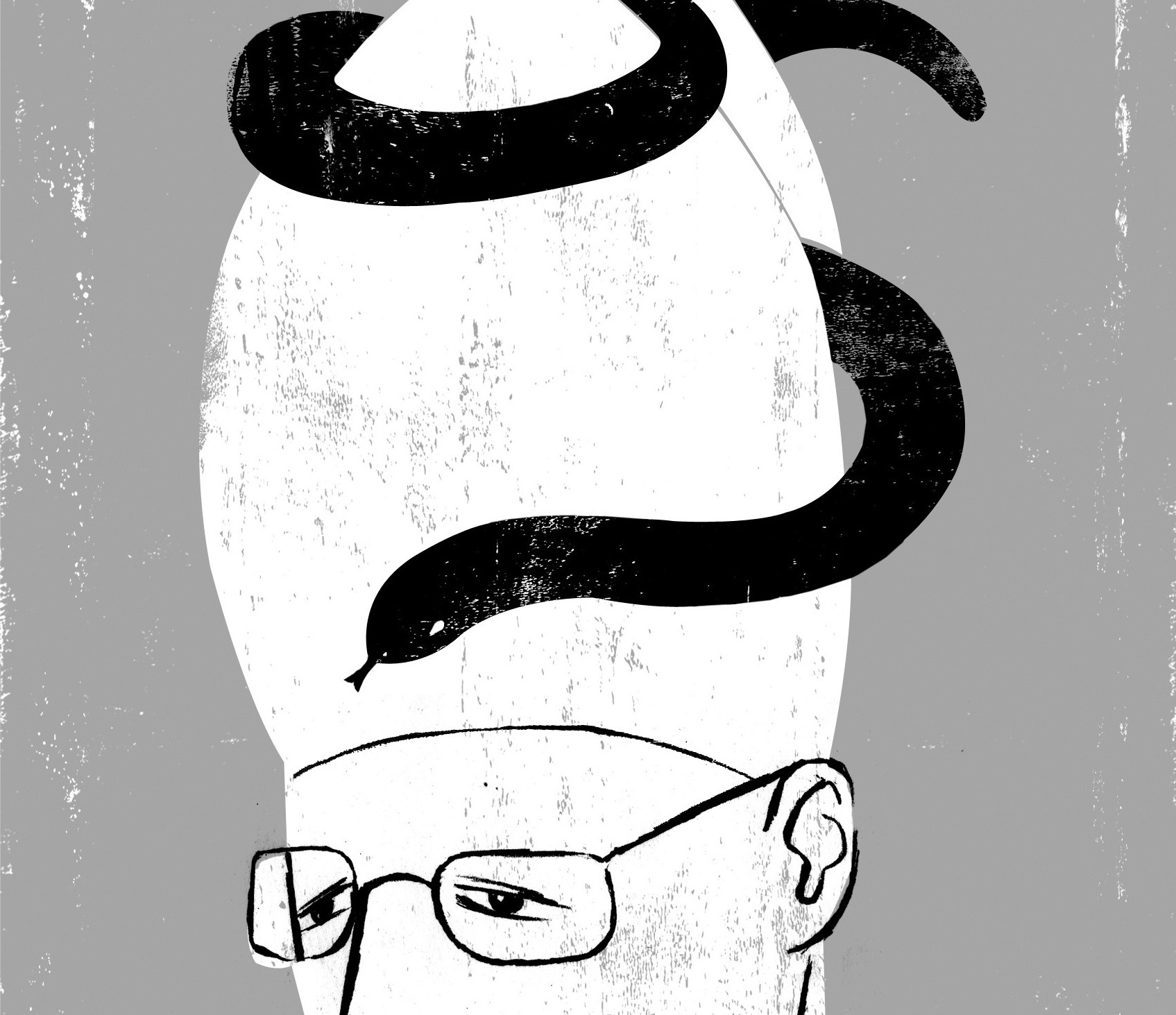Last year, a private foundation—headquartered in Raleigh, North Carolina, and flush with funds provided by a multimillionaire conservative activist—escalated its campaign against a progressive movement that has captured the nation’s attention and is now spreading to other Southern states.
The Civitas Institute, one of a half dozen nonprofit advocacy organizations created and underwritten by discount store heir Art Pope, began posting names of protestors arrested for civil disobedience at “Moral Monday” gatherings at the Capitol in Raleigh.
Moral Monday (profiled in these pages in January 2014) was founded by Disciples of Christ minister William Barber and has grown exponentially since he was elected president of the North Carolina NAACP in 2005 and began building a multi-racial political coalition.
Art Pope was involved in North Carolina politics before Barber arrived. He was elected to the General Assembly in 1988 and lost a race for lieutenant governor in 1992. His political involvement changed dramatically in 2006, when his father died and he took control of the family fortune.
Since then, flush with Art Pope’s millions, Republicans have elected majorities in both houses of the North Carolina General Assembly (2010) and a Republican governor (2012). Pope currently serves as Governor Pat McCrory’s budget director and is the intellectual author of some of the most extreme legislation signed into law since the dawn of the civil rights movement.
Moral Monday protests at the Capitol—where almost 1,000 protestors submitted to voluntarily arrest during the last legislative session—turned the hard right-wing politics of Art Pope into a national story.
Lacking a popular movement (a handful of counter-protestors sometimes confront Moral Monday crowds), Pope has responded, if at arm’s length. In 1990, the Pope family began founding, funding and shaping six foundations that have spent more than $40 million remaking North Carolina politics.
Pope’s advocacy groups, while extreme in ideology, have maintained the appearance of think tanks and public-interest foundations—conducting polls, hosting conferences, publishing studies and op-ed articles, and flooding media markets with axe-grinding opinion makers. The largest foundation, however, channels money to partisan groups such as Civitas Action, which is not constrained by IRS 501(c)(3) nonprofit restrictions and has run virulent attack ads, often disengaged from fact, against Democratic candidates.
But a simulated online police blotter that posts information on Moral Monday protestors is an escalation of the strategies the Pope foundations have employed in the past.
The Moral Monday Protestors website is remarkably similar to the commercial Mugshots.com sites, although Civitas provides more information than does its unsavory for-profit antecedent.
Addresses, employers, political party membership, and interest-group affiliations are all available with a click. If the arrestees are professors at state universities—a particular Art Pope obsession—teaching positions and salaries are posted.
A multimillionaire has escalated his campaign against a progressive movement that has captured the nation’s attention and is now spreading to other Southern states.
Click on a name and a mugshot appears in the left corner of your screen. One column includes voter registration address discrepancies or indicates that an arrestee is not registered to vote, another lists the county in which the arrestee resides. The site includes aggregated demographic information on the protestors. There is even a “pick the protestor” game for visitors with time to spare.
The commercial site Mugshots.com stipulates that all parties should be “presumed innocent until proven guilty in a court of law”—a disclaimer the Civitas website fails to make.
This is all public information available to anyone willing to dig into city or county records, even if the chilling effect of posting names, faces, and employers of protestors is undeniable.
Old, white, and middle-class
Yet the program appears to have been a bust. While some individuals whose names appeared on the site have heard from their employers, most were not intimidated.
Charles van der Horst is representative of the Moral Monday protestors, whom, according to Civitas, are 86 percent white and predominately between 55 and 74 years of age.
Van der Horst is a Harvard-trained physician who teaches at the University of North Carolina Medical School and treats patients at UNC hospitals. He told me that he found Civitas’ “blatant intimidation” shocking, if only because Civitas’ founder and funder is Governor Pat McCrory’s state budget director.
The North Carolina Medical Board is investigating van der Horst, a requirement when a licensed physician is arrested. Yet he believes that publicizing the arrests of middle-class and upper-middle-class white people might have worked against the Civitas political agenda.
“I think it backfired for a couple of reasons,” van der Horst told me.
“It showed the broad reach of a movement they had portrayed as outside agitators, whining African Americans on welfare, etc. Instead, we are largely white, professional, privately employed and above 45—i.e., the 1 percent who pay lots of taxes and are pissed off. The other thing is that it revealed how scared they are, that they would resort to this.”
University of North Carolina law professor Gene Nichol suggested that Civitas has a decidedly malign motive: to provoke individuals on the far right who are likely to act on their fears.
“This is White Citizens’ Council behavior,” Nichol told me, referring to the white supremacist groups common in the Jim Crow South. “You make their names public,” he said. “And then someone will do some harm to them, like they deserve.”
Nichol teaches at the UNC Law School. A regular speaker at Moral Monday events, he has served as Dean of the University of Colorado Law School, Dean of UNC’s Law School and President of William & Mary University. Along with teaching, he directs the Center on Poverty, Work & Opportunity at the Law School campus in Chapel Hill.
Bloated budgets and radical professors
Art Pope’s animus toward the state’s flagship campus is trans-generational. His late father John W. Pope was a UNC trustee who believed UNC Chapel Hill had been taken over by radical scholars, according to Jane Mayer’s profile of Art Pope in The New Yorker.
A Pope family think tank memorializes the Pope paterfamilias. The John William Pope Center for Higher Education advocates for budget cuts, reductions in the number of general education classes from 4,000 to 717, constraints on humanities professors “who teach their own brands of superficial or false economics and political theory,” and for a history curriculum grounded in the Western canon and focused on the thinking of “Hobbes, Locke, Smith, and Burke,” etc.
Center President Jane Shaw has urged legislators to “starve the beast” of higher education. And they have. Since Republicans took control of the General Assembly in 2010, the UNC system has lost half a billion dollars and has been compelled by the Legislature to increase tuition and freeze faculty salaries.
Nichol’s profile—an outspoken liberal professor protected by tenure—defined him as a target for Pope’s non-profit collective. Nichol had criticized Pope in Mayer’s October 2011 New Yorker profile. Two years later, Nichol apparently went too far, publishing a newspaper column that compared McCrory to Southern segregationist governors Lester Maddox, Orval Faubus and George Wallace.
Civitas responded with an article on its website, which was cross-posted on its sister foundation’s higher-ed site. The presidents of both foundations accused the university of creating jobs for Nichol and his wife and bypassing standard hiring procedures. They published the salaries the university was paying Nichol and his wife, described their “light” academic workload, and accused the Poverty Center Nichol directs of violating state law.
Then Civitas doubled down on its attack, and in the process politicized the use of the Freedom of Information Act.
Nichol told me he had received FOIA requests from Civitas in the past (he received one a few days before we spoke), but they were directed to the Poverty Center.
This time, Civitas upped its game by filing a request with the UNC Law School, with no topics or keywords that would narrow the search. He was directed to provide all e-mail, correspondence, phone records, and calendars for a five-week period prior to the publication date of the column in which Nichol criticized the governor.
“This involved going through thousands of e-mails,” Nichol said. “Some were personal, from students, former students having difficulty with their jobs, students applying for law school, my wife. It was long hours culling out personal and private matters. I had to do that with university counsel, too.”
“They claim to be a think tank,” Nichol said. “But this is not about thought. These people are thugs sending a message: ‘If you are going to speak out, you are going to pay a price.’”
Civitas posted its findings on February 25: “What UNC’s Poverty Center Was Hiding.” Visitors to the site will quickly realize the center wasn’t hiding much. Nichol predicts that other professors involved in the Moral Monday movement will be subjected to what he described as “crude intimidation.”
“Civitas serves as Art Pope’s shock troops,” Chris Fitzsimon told me. Fitzsimon, a former TV reporter, directs NC Policy Watch, a progressive think tank. “Their tactics,” he said of Civitas, “set them apart from the other organizations Art Pope has funded.”
Marx in East Carolina
Soon after Civitas sent a message to Nichol, Civitas and Pope’s higher education foundation jumped on East Carolina University’s German history professor Michael Gross.
Gross had been arrested at a Moral Monday protest in 2013. And he is one of 100 professors from 24 colleges and universities who signed a letter asking Governor McCrory and State Budget Director Pope to take a stand against the Freedom of Information request that Civitas had directed at Nichol.
When Gross joined a group of professors at an impromptu Capitol press conference, referred to modern German history, and warned that “Extremists within a democracy use their free speech often in fact to undermine that democracy”—Civitas promptly posted a YouTube clip of his remarks on its website.
A week later, the John William Pope Center website posted an article in which Gross was “outed” as a “modern-day Marxist.” But the nature of the evidence used to indict Gross was unconventional.
Rather than poring over Gross’s published work, interviewing his students, or sending moles to his lectures, Pope Center State Policy Director Jay Schalin turned to an unimpeachable news source: Facebook.
In fact, Gross’s own Facebook page.
Last summer, Gross posted a photo of himself wearing a “Keep Quiet and Read Marx” tee shirt. Posed in a straw hat, plaid Bermuda shorts, black loafers, black socks and the black Marxist shirt with a price tag hanging from its hem, Gross wrote:
“I have now decided upon my summer 2013 attire. It says ‘me’ and I’m going with it.”
It was, Gross said, a moment of self-parody intended to amuse the friend who sent him the shirt. (The Joseph Stalin propaganda poster that accompanied Jay Schalin’s story on the Pope Center site was not intended as parody.)
Gross, who is not a Marxist and had carefully avoided using inflammatory terms like “Nazi” and “Hitler” in his remarks at the Capitol, said the “defamatory” article written by Schalin represents the extremist rhetoric he referred to when he spoke at the Capitol.
Art Pope continues his work for the governor, accepting $1 a year for salary, and is wealthy enough to keep his foundations funded for decades.
While he has changed the political culture in the state, he is not making much progress with Moral Monday.
The movement’s annual “Historic Thousands on Jones Street,” (where the Capitol is located) began in 2007 with a crowd of 5,000, turned out 15,000 last year, and on February 8 of this year drew an estimated 80,000 to 100,000 supporters.
“Moral Monday has tapped into something very deep,” Nichol said.
“There is no other counterweight to Pope and these organizations. So they’ve attacked Barber in vicious and untruthful ways. And they’ll continue to try to intimidate the movement.
“It is,” Nichol said, “all they know how to do.”
Lou Dubose is the editor of The Washington Spectator.







0 Comments